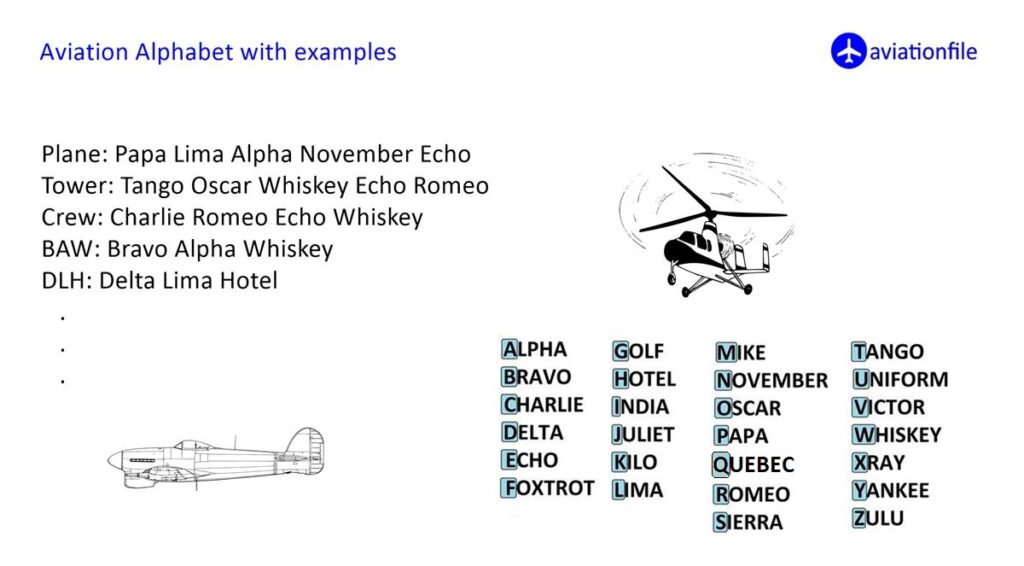The Importance of Aviation English: Enhancing Safety and Communication
Aviation English plays a vital role in the aviation industry, serving as the international language of communication for pilots, air traffic controllers, and other aviation professionals. In this fast-paced and globally interconnected world, where air traffic continues to increase, the need for effective and precise communication cannot be overstated. This article explores the significance of Aviation English and highlights its role in enhancing safety and communication within the aviation industry.
Improved Safety and Operational Efficiency
Aviation English ensures a high level of safety by minimizing the risk of miscommunication, which can have severe consequences in the aviation context. Clear and concise communication is crucial for understanding and executing critical instructions, such as clearances, approach procedures, and emergency protocols. Effective communication in Aviation English reduces the potential for misunderstandings and helps pilots and air traffic controllers maintain situational awareness, ultimately enhancing safety and operational efficiency.
Standardization and Global Compatibility
Aviation English provides a standardized language that enables pilots, air traffic controllers, and aviation personnel from different countries and backgrounds to communicate effectively. It eliminates language barriers and ensures consistent understanding across the global aviation community. With the increasing globalization of air travel, a common language is essential for seamless coordination and collaboration between professionals worldwide. By using Aviation English, the industry can maintain high standards of professionalism and create a safer and more efficient global aviation network.
Compliance with International Regulations
The International Civil Aviation Organization (ICAO) has recognized the importance of Aviation English and established language proficiency requirements for pilots and air traffic controllers. These regulations ensure that professionals possess the necessary language skills to communicate effectively in the aviation environment. Compliance with ICAO language proficiency standards helps maintain a high level of competence and professionalism, contributing to safer skies.
Effective Emergency Response
During critical situations and emergencies, clear and timely communication is paramount. Aviation English enables swift and accurate exchange of information, facilitating efficient emergency response. In high-stress situations, effective communication can be a lifesaver, ensuring that all relevant parties understand the urgency and act accordingly. By mastering Aviation English, professionals can improve their ability to handle emergency situations and mitigate potential risks.

Enhanced Training and Career Opportunities
Proficiency in Aviation English opens up a wide range of training and career opportunities within the aviation industry. Airlines, aviation academies, and regulatory bodies value individuals with strong communication skills and fluency in Aviation English. Pilots and air traffic controllers who possess the necessary language proficiency have a competitive edge when seeking employment, promotions, and international assignments. Investing in improving one’s Aviation English proficiency can pave the way for a successful and rewarding career in aviation.
Conclusion
Aviation English serves as the backbone of communication within the aviation industry, ensuring safe and efficient operations. From minimizing the risk of miscommunication to enabling effective emergency response, the importance of Aviation English cannot be understated. By adhering to international standards, professionals can enhance their skills, comply with regulations, and open doors to exciting career opportunities. Embracing the significance of Aviation English is crucial for creating a safer, more interconnected aviation network that benefits everyone involved.
References:
- ICAO. (n.d.). Language Proficiency. Retrieved from https://www.icao.int/safety/airnavigation/OPS/OPS-english/proficiency/Pages/default.aspx
- Civil Aviation Safety Authority. (n.d.). Aviation English. Retrieved from https://www.casa.gov.au/licences-and-certification/aviation-english
- Federal Aviation Administration. (n.d.). English Language Proficiency Standards for Airmen. Retrieved from https://www.faa.gov/training_testing/testing/acts/media/faa-icao_comparision_chart.pdf


